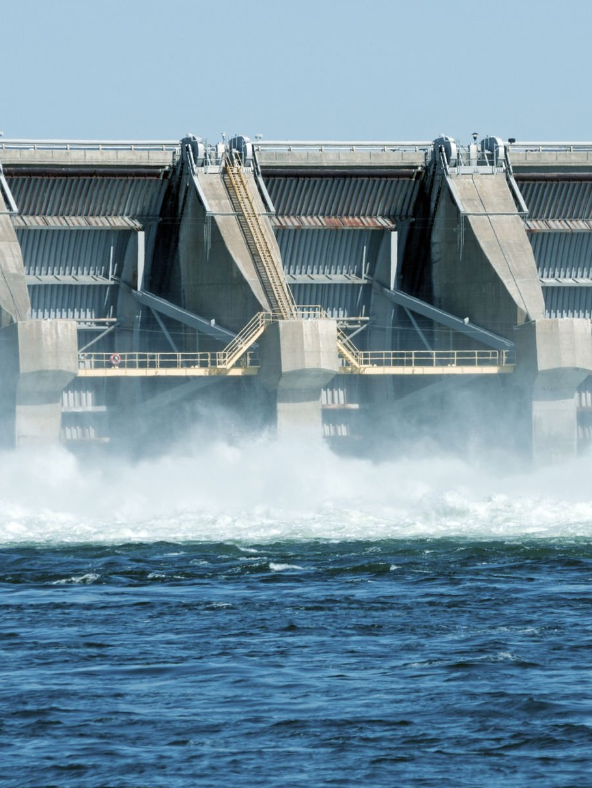Introduction
Hydropower is one of the oldest and most significant sources of renewable energy used for electricity generation. This technology relies on harnessing the kinetic energy of flowing water to drive turbines and generate electricity. In addition to being a clean and sustainable energy source, hydropower offers a range of economic and environmental benefits that contribute to improving quality of life and promoting sustainable development. In this topic, we will explore in detail the economic and environmental benefits of hydropower.

Economic Benefits of Hydropower
Low Operating Costs: After constructing a hydropower plant, operating and maintenance costs are relatively low compared to other power plants. This is because hydropower does not rely on purchasing fuel or raw materials, which reduces ongoing expenses.
Job Creation: Hydropower projects create numerous job opportunities during the design, construction, operation, and maintenance phases. These jobs extend beyond the energy sector to supporting industries such as engineering, transportation, and manufacturing.
Boosting Local Economies: Hydropower projects stimulate local economies through significant investments in infrastructure. These projects provide revenue to local governments through taxes and fees and foster local development by providing reliable electricity at affordable prices.
Energy Price Stability: Unlike fossil fuels, which are affected by market fluctuations and global prices, hydropower offers stability in energy prices. This helps protect economies from sharp energy price fluctuations and maintains government and business budgets.
Support for Agriculture and Irrigation: Many hydropower projects involve constructing water storage dams that can be used for irrigation purposes. This provides a reliable water source for agriculture, enhancing productivity and ensuring food security.
Environmental Benefits of Hydropower
Reduction in Carbon Emissions: Hydropower does not produce greenhouse gas emissions during electricity generation, making it a clean energy source. This helps mitigate climate change by reducing the carbon footprint of industrial and residential sectors.
Air Quality Preservation: By reducing reliance on fossil fuels, hydropower helps decrease air pollution caused by fuel combustion. This leads to improved air quality and reduces public health issues related to air pollution, such as respiratory diseases.
Biodiversity and Environmental Protection: When well-planned, hydropower projects can contribute to biodiversity protection. Some projects involve creating protected areas around dams and reservoirs, providing habitats for wildlife and local plants.
Water Resource Management: Hydropower stations aid in managing water resources by storing water and using it during dry periods or when energy demand is high. This enhances the ability to control water distribution and provides stable water resources for local communities.
Support for Multiple Land Uses: Large-scale hydropower projects, such as dams, can be used for multiple purposes, including energy generation, flood control, and irrigation. These multiple uses enhance the environmental and economic value of the projects and help achieve sustainable development.
Conclusion
Hydropower offers a unique combination of economic and environmental benefits, making it an important option for meeting global energy needs sustainably. By improving natural resource management, supporting local economies, and reducing environmental impact, hydropower can play a key role in achieving a cleaner and more sustainable future. However, hydropower projects must be carefully planned to ensure a balance between benefits and potential challenges.

1 thought on “Economic and Environmental Benefits of Hydropower”